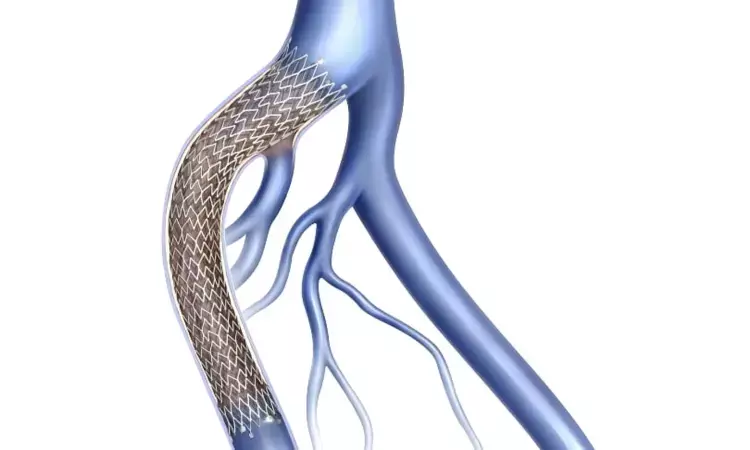- Home
- Medical news & Guidelines
- Anesthesiology
- Cardiology and CTVS
- Critical Care
- Dentistry
- Dermatology
- Diabetes and Endocrinology
- ENT
- Gastroenterology
- Medicine
- Nephrology
- Neurology
- Obstretics-Gynaecology
- Oncology
- Ophthalmology
- Orthopaedics
- Pediatrics-Neonatology
- Psychiatry
- Pulmonology
- Radiology
- Surgery
- Urology
- Laboratory Medicine
- Diet
- Nursing
- Paramedical
- Physiotherapy
- Health news
- Fact Check
- Bone Health Fact Check
- Brain Health Fact Check
- Cancer Related Fact Check
- Child Care Fact Check
- Dental and oral health fact check
- Diabetes and metabolic health fact check
- Diet and Nutrition Fact Check
- Eye and ENT Care Fact Check
- Fitness fact check
- Gut health fact check
- Heart health fact check
- Kidney health fact check
- Medical education fact check
- Men's health fact check
- Respiratory fact check
- Skin and hair care fact check
- Vaccine and Immunization fact check
- Women's health fact check
- AYUSH
- State News
- Andaman and Nicobar Islands
- Andhra Pradesh
- Arunachal Pradesh
- Assam
- Bihar
- Chandigarh
- Chattisgarh
- Dadra and Nagar Haveli
- Daman and Diu
- Delhi
- Goa
- Gujarat
- Haryana
- Himachal Pradesh
- Jammu & Kashmir
- Jharkhand
- Karnataka
- Kerala
- Ladakh
- Lakshadweep
- Madhya Pradesh
- Maharashtra
- Manipur
- Meghalaya
- Mizoram
- Nagaland
- Odisha
- Puducherry
- Punjab
- Rajasthan
- Sikkim
- Tamil Nadu
- Telangana
- Tripura
- Uttar Pradesh
- Uttrakhand
- West Bengal
- Medical Education
- Industry
Iliac vein stenting safe procedure for office-based laboratory setting: Study

Greenbelt, Md: Iliac vein stenting is a safe and well-tolerated procedure in an office-based laboratory (OBL) setting and major complications were rare, finds a recent study in the Journal of Vascular Surgery: Venous and Lymphatic Disorders. Insertion site hematomas were primarily minor complications that did not require inpatient hospitalization.
Venous stenting for iliac vein outflow obstruction is shown to be related to excellent long-term stent patency and symptom resolution. However, there is no clear-cut definition of iliac vein stenting performed in an OBL setting. Considering this, Levan Sulakvelidze, Center for Vascular Medicine, Greenbelt, Md, and colleagues aimed to determine the safety profile of iliac vein stenting in an OBL setting.
For the purpose, the researchers prospectively collected the data in the Center for Vascular Medicine electronic medical record system (NextGen Healthcare Information System, Irvine, Calif) and retrospectively analyzed. Standardized patient safety and sedation protocols were used according to the accreditation standards of the Joint Commission for Accreditation of Hospital Organizations for office-based surgery centers.
The present analysis included patient consultations, interventions, and follow-up at 1 to 6 weeks. During their procedure, all the patients had received moderate sedation. Complications requiring hospitalization were classified as major complications. Minor complications consisted of hematoma, bleeding, vasovagal response, in-stent thrombosis leading to complete occlusion of the iliac vein stent, an allergic reaction, hematemesis, hypotension, pelvic discomfort, and pseudoaneurysm.
Salient findings include:
· 1223 iliac vein stents were placed in 1104 patients (23.7% male; 76.3% female) between January 2015 and January 2019.
· A total of 90 minor complications (7.36%) and 5 major complications (0.41%) were observed.
· The major complications included the following: one allergic reaction, one episode of atrial fibrillation, one episode of supraventricular tachycardia, one episode of chest pain, and one case of acute stent occlusion.
· The minor complications were primarily insertion site hematomas.
· No complications were related to sedation or acute renal failure. No patient died.
"Our analysis has shown that iliac vein stenting in an OBL setting is a safe and well-tolerated procedure," the authors concluded.
Reference:
The study titled, Iliac vein stenting is safe when performed in an office based laboratory setting," was published in the Journal of Vascular Surgery: Venous and Lymphatic Disorders.
Dr Kamal Kant Kohli-MBBS, DTCD- a chest specialist with more than 30 years of practice and a flair for writing clinical articles, Dr Kamal Kant Kohli joined Medical Dialogues as a Chief Editor of Medical News. Besides writing articles, as an editor, he proofreads and verifies all the medical content published on Medical Dialogues including those coming from journals, studies,medical conferences,guidelines etc. Email: drkohli@medicaldialogues.in. Contact no. 011-43720751


